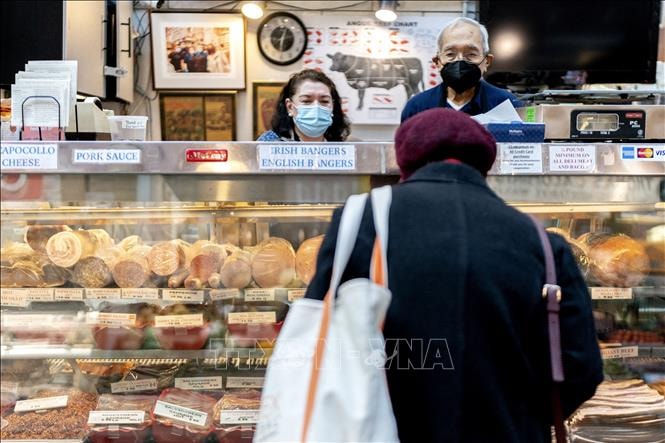On April 4, US Federal Reserve Chairman Jerome Powell said that tariffs imposed by President Donald Trump are increasing the risk of unemployment, which could lead to higher inflation and slower growth.

Speaking at an event in Virginia, Mr. Powell said: "It is now clear that the tax increases will be significantly larger than expected... The same could happen with the economic impacts, including higher inflation and slower growth." He also added that it was "too early" to consider changing US monetary policy.
He also expressed hope that the current unrest will ease in the coming months. He also predicted that after a transition period of about a year from now, the actual impact of the policies will be quite clear.
The Fed Chairman's statement came after President Trump posted a post on social media urging Mr. Powell to cut interest rates immediately, while also saying that there were factors affecting Mr. Powell's role in running the independent central bank of the United States.
The aggressive tariffs announced by President Trump on April 2 will tighten control over the Fed chairman and how the central bank will respond to free-falling financial markets and concerns that a prolonged trade war will increase consumer prices and unemployment, analysts said.
The new tariffs, including the base tariff and the reciprocal tariff, announced by President Trump on April 2, if officially applied according to the US leader's plan, will mean that the new tariffs will be added to the specific tariffs imposed on each country by Washington in the past month. For example, Chinese goods entering the US will be subject to a total tax of 54%, including the new 20% tariff applied from March 4 and the 34% reciprocal tariff mentioned above (from April 9).
* Also on April 4, CNN news network reported that President Donald Trump is contacting representatives from Israel and India to negotiate trade agreements that could reduce the tariffs that the US leader proposed for these countries before the April 9 deadline.
Meanwhile, according to Axios, Israeli Prime Minister Benjamin Netanyahu is expected to meet with President Trump at the White House next week. The meeting is scheduled for April 7, which may include negotiations on how the US can remove its plan to impose a 17% reciprocal tariff on Israel.
If the visit takes place, Prime Minister Netanyahu will be the first foreign leader to meet with President Trump since the "White House boss" announced plans to impose reciprocal tariffs on dozens of countries, including Israel.
According to President Trump's announcement on April 2, the US reciprocal tax rate for two French overseas territories - La Reunion in the Indian Ocean and Saint-Pierre-et-Miquelon in the North Atlantic - is 37% and 50% respectively. However, on April 4, the US government announced that it would reduce the reciprocal tax for La Reunion to 10% because this territory is part of the common customs area of the European Union (EU). Meanwhile, Washington kept the 50% rate for Saint-Pierre-et-Miquelon because technically, this territory is not part of the common customs area of the EU.